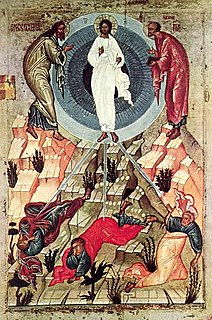 W
WAn alter ego means an alternative self, which is believed to be distinct from a person's normal or true original personality. Finding one's alter ego will require finding one's other self, one with a different personality. The altered states of the ego may themselves be referred to as alterations. A distinct meaning of alter ego is found in the literary analysis used when referring to fictional literature and other narrative forms, describing a key character in a story who is perceived to be intentionally representative of the author's work, by oblique similarities, in terms of psychology, behavior, speech, or thoughts, often used to convey the author's thoughts. The term is also sometimes, but less frequently, used to designate a hypothetical "twin" or "best friend" to a character in a story. Similarly, the term alter ego may be applied to the role or persona taken on by an actor or by other types of performers.
 W
W"Ars Poetica", or "The Art of Poetry", is a poem written by Horace c. 19 BC, in which he advises poets on the art of writing poetry and drama. The Ars Poetica has "exercised a great influence in later ages on European literature, notably on French drama" and has inspired poets and authors since it was written. Although it has been well-known since the Middle Ages, it has been used in literary criticism since the Renaissance.
 W
WThe Ashta-Nayika is a collective name for eight types of nayikas or heroines as classified by Bharata in his Sanskrit treatise on performing arts - Natya Shastra. The eight nayikas represent eight different states (avastha) in relationship to her hero or nayaka. As archetypal states of the romantic heroine, it has been used as theme in Indian painting, literature, sculpture as well as Indian classical dance and music.
 W
WCriticism is the practice of judging the merits and faults of something.
 W
WDeus ex machina is a plot device whereby a seemingly unsolvable problem in a story is suddenly and abruptly resolved by an unexpected and unlikely occurrence. Its function is generally to resolve an otherwise irresolvable plot situation, to surprise the audience, to bring the tale to a happy ending, or act as a comedic device.
 W
WA doppelgänger or doppelganger is a biologically unrelated look-alike, or a double, of a living person.
 W
WA dystopia is a fictional community or society that is undesirable or frightening. It is often treated as an antonym of utopia, a term that was coined by Sir Thomas More and figures as the title of his best known work, published in 1516, which created a blueprint for an ideal society with minimal crime, violence and poverty. The relationship between utopia and dystopia is in actuality contrary of being an instance of simple opposition, as many utopian elements and components are found in dystopias as well, and vice versa.
 W
WEthos is a Greek word meaning "character" that is used to describe the guiding beliefs or ideals that characterize a community, nation, or ideology. The Greeks also used this word to refer to the power of music to influence emotions, behaviors, and even morals. Early Greek stories of Orpheus exhibit this idea in a compelling way. The word's use in rhetoric is closely based on the Greek terminology used by Aristotle in his concept of the three artistic proofs or modes of persuasion. It gives credit to the speaker, or the speaker is taking credit.
 W
WThe term hamartia derives from the Greek ἁμαρτία, from ἁμαρτάνειν hamartánein, which means "to miss the mark" or "to err". It is most often associated with Greek tragedy, although it is also used in Christian theology. The term is often said to depict the flaws or defects of a character and portraying these as the reason of a potential downfall. However, other critics point to the term's derivation and say that it refers only to a tragic but random accident or mistake, with devastating consequences but with no judgment implied as to the character.
 W
WThe distinction between horror and terror is a standard literary and psychological concept applied especially to Gothic and horror fiction. Terror is usually described as the feeling of dread and anticipation that precedes the horrifying experience. By contrast, horror is the feeling of revulsion that usually follows a frightening sight, sound, or otherwise experience.
 W
WIn Christian theology, kenosis is the 'self-emptying' of Jesus' own will and becoming entirely receptive to God's divine will.
 W
WThe superfluous man is an 1840s and 1850s Russian literary concept derived from the Byronic hero. It refers to an individual, perhaps talented and capable, who does not fit into social norms. In most cases, this person is born into wealth and privilege. Typical characteristics are disregard for social values, cynicism, and existential boredom; typical behaviors are gambling, drinking, romantic intrigues and duels. He is often unmindful, indifferent or unempathetic with society's issues and can carelessly distress others with his actions, despite his position of power. He will often use his power for his own comfort and security and will have very little interest in being charitable or using it for the greater good.